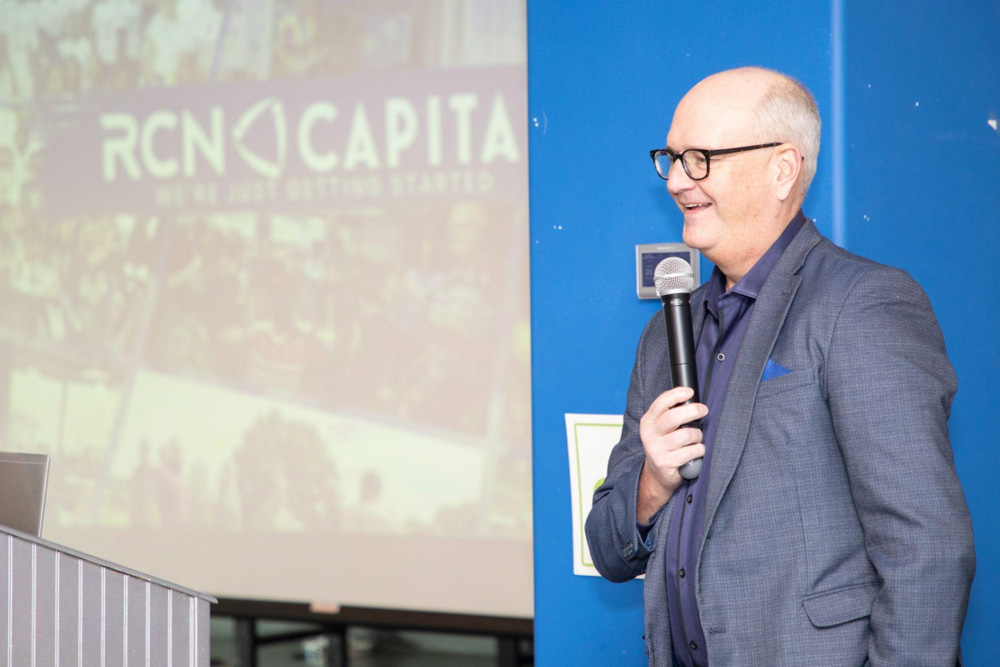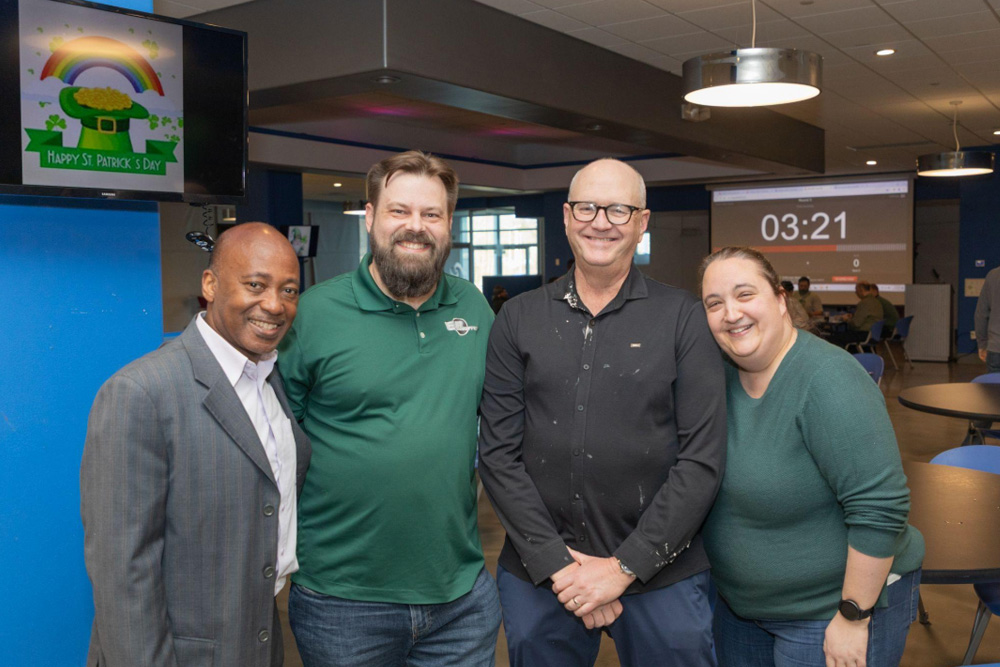|
Getting your Trinity Audio player ready...
|
We’re honored to feature Jeffrey Tesch, CEO of RCN Capital — one of the most influential voices in the private lending industry. Under his leadership, RCN has grown into a national powerhouse, recognized for its speed, consistency, and unwavering commitment to brokers and investors alike. Over the past 12 months, the company originated $1.59 billion in loans, earning the No. 3 spot nationwide in market share.
In the midst of a fast-evolving market, Jeffrey graciously took the time to share his insights with The Elite Officer. We’re truly grateful for his openness and generosity. We hope this conversation brings valuable perspective to Loan Officers and professionals navigating today’s lending landscape.
Originally intended as a straightforward Market Insight interview… this piece became something more. I just couldn’t help myself.
Very quickly, it turned into something much more than numbers and trends. Yes, you’ll find a sharp analysis of the current state of private lending and valuable insights on how to navigate today’s challenging market. But you’ll also discover how one of the most important companies in the industry was born—and evolved—told firsthand by its CEO, Jeffrey Tesch. We talk about corporate culture, leadership, pivotal decisions, and life lessons that go beyond business.
The conversation with Jeffrey flows through emotions rarely seen in the financial world: the joy of the path traveled, genuine excitement for what lies ahead, but also a responsible concern for today’s uncertain landscape, and the seriousness of a leader who leads by example. There’s laughter as we revisit the company’s early days, and a hint of sadness when recalling the tough times brought by the pandemic. All of it wrapped in a human warmth—and above all, a humility—that leaves a lasting impression on this writer.
Though the article is presented as a conversation, it is not a word-for-word transcript. Some parts have been adapted for clarity and flow—but I believe the essence of each message remains intact.
I’ll leave you now with Jeffrey.

Uriel Fleicher: First of all, thank you. Just to warm things up—let’s talk about your company, Rehab Cash Now. (Yes, that was actually the original name, and when I mentioned it, Jeffrey started laughing—and so did I.)
Jeffrey Tesch: Yeah, that’s how it all started. It was an interesting time—2010—15 years ago. We just celebrated our 15th anniversary with a big party. It was especially exciting for the employees that have been with us the entire way. In 2010, the single-family housing market in the U.S. was extremely challenged. Prices were deflating because conventional buyers had no appetite to purchase, and banks were foreclosing on properties due to people’s inability to make payments in a tough economic climate.
We believed it was the perfect time to launch a business that deployed capital to investors buying distressed properties—often unlivable—and fixing them up to return to the market. Our whole focus was to provide capital not just to buy, but also to rehab the property. Once they sold, we’d get paid off. That’s where the name Rehab Cash Now came from.
It was 2010, and I was trying to find a name. Even then, finding a good .com domain was hard. I wanted something simple that clearly said what we did and was easy to spell. That’s how RehabCashNow.com started.
A few years later, our Chief Marketing Officer, Erica LaCentra, said we had graduated and needed a more institutional name. RehabCashNow sounded a little… informal. So we became RCN Capital. But you can still go to rehabcashnow.com—it redirects to RCN’s website.

Uriel: Thank you for that. Now, about the work culture at RCN. Someone from your company, whose name I’ll keep private, told me, “Jeffrey really cares about us.” I also read that during the pandemic, you struggled not seeing your team every day. So it seems RCN is like a family to you. Can you tell me more about that connection?
Jeffrey: As I’ve matured in my career, I’ve realized—starting even before RCN when I owned franchises—that everything that leads to success revolves around making employees feel valued, appreciated, and elevated to be the best version of themselves they can be, and that goes for good times and bad times. When we hire people it’s about building a collective community of like-minded people who enjoy working together and support one another. That’s more important than a 4.0 GPA or a fancy degree.
We don’t hire people for jobs—we hire for careers. There’s a big difference. Jobs are tasks. Careers are about investment in growth—for them and for us. That’s why RCN feels like a family.
Uriel: I couldn’t agree more. Let’s switch gears. I want to hear your thoughts on the current market. How is RCN positioned and what are you hearing from other lenders?
Jeffrey: There’s still a massive deficit in single-family housing. Despite a lot of building, the shortage hasn’t improved since COVID. That structural deficit—some estimate between 2 to 5 million units—benefits lenders like us who support investors fixing up or building homes. It’s especially bad in places like California and New York, but really it’s all across the country. The private lending sector is in a strong position to provide the capital needed to help solve that problem. We’re well-equipped to step in.
On the financing side, we all thought interest rates would be lower by now. That hasn’t happened. Mortgage rates are hovering between 6.75% and 7.25%, and that’s causing affordability challenges. Elevated rates, combined with limited housing supply, continue to push prices up—making it increasingly difficult for folks to afford housing and ultimately slowing transaction volume across the board, in both business-purpose and owner-occupied lending.
All of that said, rental properties are still performing due to rising rents. Buy-fix-sell models are also resilient because the loans are short-term. What matters more is whether the finished product can sell quickly.

Uriel: I was recently reviewing your Investor Sentiment Index—it’s a fascinating snapshot of what’s happening on the ground. One concern that really stood out was competition from institutional investors. Can you explain that?
Jeffrey: Most single-family investment properties are owned by small investors—over 50% own just one. Institutional buyers—large, publicly traded companies—sometimes enter markets and outbid these individuals. That’s a concern for our customer base, which is entirely made up of smaller investors.
That said, currently institutional investors aren’t very active due to high prices. So while it’s a concern, it’s not an immediate threat.
Uriel: Another question: private credit has gone mainstream, largely thanks to securitization. Given today’s environment, have there been new capital requirements, like higher FICO scores?
Jeffrey: Surprisingly, no. Access to capital for originators like RCN is higher than ever. Investors see business-purpose loans as stable and attractive. The single-family home is arguably the greatest asset ever created—it holds long-term value. Hedge funds, insurance companies, and others are pouring in.
Securitizations are in high demand, especially after the first rated deal last year—it really opened the door to more institutional capital. That does compress margins, especially given the housing shortage and elevated rates, which makes strong underwriting more important than ever. At RCN, we started with our own money, so we take risk management very seriously.
Overall, capital is flowing, and for now, underwriting guidelines have remained mostly stable.
Uriel: Before we wrap up, is there anything I didn’t ask that you think is important to mention about the market?
Jeffrey: Actually, yes—let’s talk about the Fed for a moment, because this is often misunderstood. People tend to believe that if the Federal Reserve lowers the discount rate, mortgage rates—like the 30-year—will automatically follow. But that’s not really how it works. While the Fed can influence short-term rates, it’s ultimately the bond market that dictates where long-term rates go.
Fannie and Freddie loans are priced off bond yields, and those yields respond to broader market dynamics. So even if the Fed cuts rates, that doesn’t guarantee we’ll see a meaningful drop in mortgage rates. What really matters is how much capital is available in the system—and right now, a lot of that capital is being absorbed by the federal government’s own bond issuances.
Government debt is considered the safest asset in the world. So when those bonds hit the market, they soak up a huge amount of available capital—capital that might otherwise flow into mortgage-backed securities. And if there’s limited capital chasing those, it’s hard for Fannie and Freddie rates to come down significantly, even if the Fed makes a move.
So yes, rates may drop. But not in a straight line, and not just because the Fed says so. That’s a critical distinction for investors—and homeowners—to understand.

Uriel: Thank you. Can I ask you something? I noticed your wall clock says “Now. Now. Now.” instead of numbers, and I can also see the phrase “The Time is Now” written on your whiteboard. What’s the philosophy behind that?
Jeffrey: “The time is now” is a motto I live by. Every day is your opportunity to act. We tell loan officers—don’t wait until tomorrow to call brokers. Do it today. Do it now! Maximize your time. That mindset gives you an edge over the competition. I first heard it at a productivity seminar, and one of my team members actually bought me that clock. “I found the perfect clock for you!” he said.
(I was really enjoying this part of the interview—it was like a TED Talk!)
Uriel: Do you remember a moment that really embodied that philosophy?
Jeffrey: Let me think—when I look back, what comes to mind first are the challenges, more than the opportunities. But I think that’s just how the brain works—we’re wired to remember the hard parts first. During COVID, when the world shut down, we didn’t lay off anyone. Even people with no immediate tasks, like legal or closing staff, were repurposed to call our partners. We didn’t hide—we communicated, even when we had nothing good to say. That paid off hugely when capital started flowing again. Everyone remembered we stayed present.
Uriel: Thank you for that—it was truly inspiring. You’ve also launched an educational platform, right? Can you tell me more about it?
Jeffrey: Yes, sure. About five years ago, we created a self-directed training platform for brokers, correspondent lenders, loan officers, and their teams to become experts in private lending—buy-fix-sell, rentals, and construction. We give it to our partners for free. It’s a huge success and we keep investing in it. You just need to be registered with RCN.

Uriel: That’s amazing. We’re working on education too. And now, you have a podcast with REI INK Magazine. It’s great.
Jeffrey: Yes, we love it. We’ve had property managers, investors, contractors—it’s a great platform for sharing insights.
Uriel: To close, do you have any advice for new lenders or loan officers?
Jeffrey: Get in the weeds. If you’re the founder or CEO, be shoulder to shoulder with your team. Don’t outsource your company’s core from day one. Learn every piece of the business. I started by picking up the phone myself. Other mentors gave me that advice years ago, and it really goes back to my franchise food days—where I’d be right in the trenches doing all the work with everybody else. I wanted to understand, to be with them. I genuinely wanted to be there. You will be rewarded ten times over for that. You will.
Uriel: Thank you, Jeffrey. I enjoyed this conversation so much—it was truly a pleasure to have you in our very first edition.
Jeffrey: I enjoyed you. I hope you’re going to have much success with your new venture!



